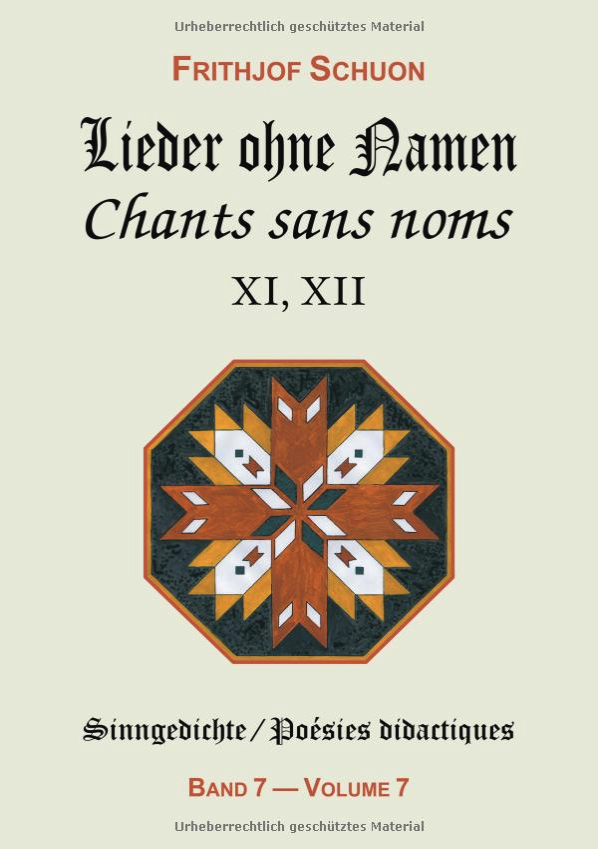
Frithjof Schuon Archive

Briefe
| Titel | Zusammenfassung | Publication Data | Dated |
|---|---|---|---|
| Extract from a letter from Frithjof Schuon | Regarding the question of transubstantiation, which I address briefly in Logic and Transcendence, the Oriental character of the words in question can be seen in their use of ellipsis: Christ did not say, “I am like a vine, like a door”, but he said, “I am the vine, the door”; likewise he did not say, “This conveys divine power in the same way my body conveys divine power”, but he said, “This is my body”. | Logic & Transc. p.237 | 02/01/1976 |
| Extract from a letter from Frithjof Schuon | One should not reproach a science for not being what it does not want to be or for not providing what it does not want to provide. In this respect one should not criticize modern chemistry insofar as it studies the phenomena it intends to study, for on its limited plane it remains within adequation and is not exceeding its strengths; nor can one blame it for remaining within the strictly human perspective in relation to matter, for it need not go beyond this point, and indeed no physical science needs to do so. | Logic & Transc. p.235 | 06/22/1964 |
Featured Books
Lieder ohne Namen – Chants sans noms, XI, XII : Poésies didactiques, tome 7 (zweisprachige Ausgabe) (Taschenbuch)
In den letzten drei Jahren seines Lebens schrieb Frithjof Schuon etwa 3.500 Gedichte in seiner Muttersprache Deutsch.
Featured Poems
Adastra and Stella Maris: Poems by Frithjof Schuon-Doubt
Thou hast never been in the better Hereafter;
Adastra and Stella Maris: Poems by Frithjof Schuon-A Myth
It has been taught: one of the highest angels
Adastra and Stella Maris: Poems by Frithjof Schuon-Eschatology
It is taught that there is Heaven or hell
Featured Articles
Book Review of “Light on the Ancient Worlds”
Foreword to “Language of the Self”
V. Raghavan (1908-1979) wrote this „Foreword“ to Frithjof Schuon’s book Language of the Self. It appeared in the first edition in India, and then later in World Wisdom’s 1999 edition. The foreword summarizes Schuon’s perspective in a number of areas as divergent as the transcendent unity of religions, the modern world, metaphysics, and his approach to and appreciation of Hinduism.
The Mystery of the Two Natures
Combining a Socratic and a personal approach, Cutsinger looks to the writings and insights of Frithjof Schuon to examine „how in good conscience can a traditional Christian accept the idea that there is a ‚transcendental unity of religions‘?“ The author finds answers in a deeper understanding of Christ’s two natures: human and Divine.
